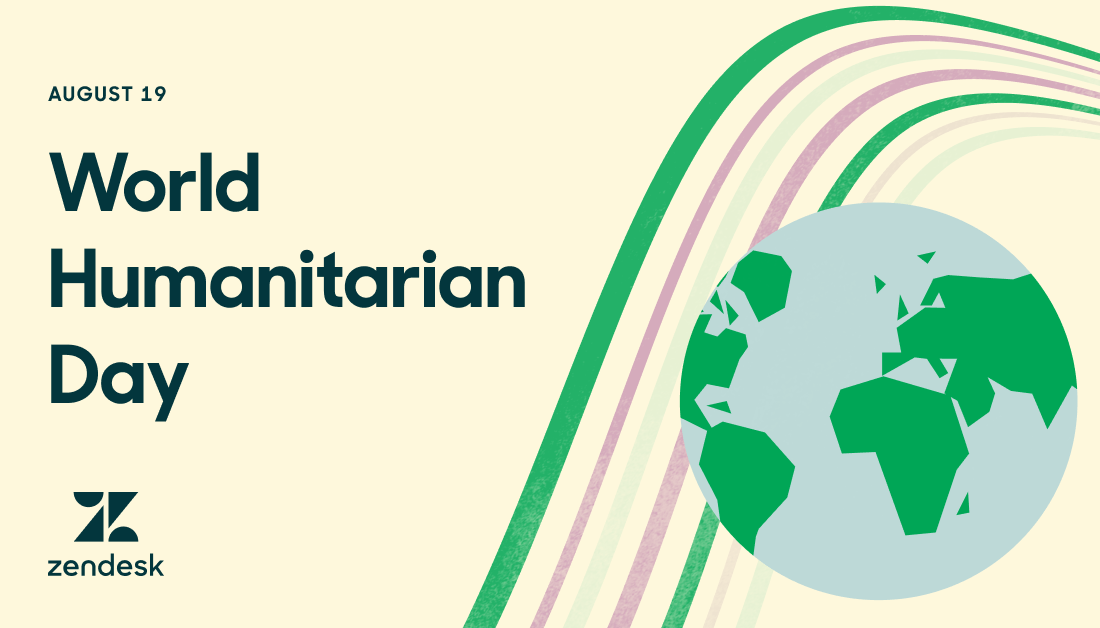On 19th August 2003, a bomb attack in Baghdad, Iraq, killed 22 humanitarian aid workers. In 2008, the UN General Assembly designated this date—the 19th of August— as World Humanitarian Day (WHD) to commemorate aid workers who have lost their lives in the line of duty. Each year, the UN Office for the Coordination of Humanitarian Affairs (OCHA) and humanitarian partners focus on a theme to campaign for the survival, well-being and dignity of all those affected by crises and in war-torn areas, including the safety and security of aid workers.
This year’s official WHD theme upholds the spirit of collective endeavour, the coming together of partners and organisations around the world to protect the most vulnerable in conflict zones. It also aims to grow a global appreciation of humanitarian workers who risk their lives, often working away from the spotlight; toiling tirelessly to deliver urgent health care, shelter, food, water, protection—and above all—hope to so many.
The year 2022 has been especially trying for our community of aid workers, and in many ways, a litmus test of our global solidarity.
In the wake of the Russian invasion of Ukraine this year, and the heartbreaking scenes that unfolded, thousands of aid workers have mobilised to help the millions of Ukrainians who are still trapped in the conflict zones, are fleeing their homes or have become displaced.
Our partner organisations, including the International Rescue Committee (IRC), are providing critical aid to Ukrainian refugees.

Image courtsey of IRC
Using technology to alleviate human suffering
The International Rescue Committee (IRC) is active in 40 countries, including Afghanistan, South Sudan, and Syria, providing emergency assistance and support to people in hard-to-reach areas. In 2015, the IRC and Mercy corps launched Signpost at the peak of the European refugee crisis with the mission to provide vital community-led information services from the frontlines of conflict zones for the aid sector. Signpost was initially built on disparate systems that struggled to communicate effectively, making rapid scaling impossible.
In 2020, the IRC and its Signpost partners turned to Zendesk to see if our technology could enhance Signpost’s services in the same way that it had improved the IRC’s Welcome Centre intake and follow-up processes. The first Signpost platform built on Zendesk software launched in Colombia later that year. Using Zendesk Support Suite, Signpost was able to provide multi-channel communications and analytics for their project team, and seamlessly integrate their Contentful CMS tool. This allows their projects to easily populate knowledge articles and service locations on their service map so refugees and aid workers can access critical information via digital and social channels in the languages they speak. Today, Signpost connects over 24 million people with information and is active in 18 countries, delivering information in 11 languages.
In April this year, the latest resource supported by Signpost, United for Ukraine, went live. The online resource portal helps individuals and families fleeing Ukraine find shelter, job opportunities, psychological support, legal aid, and other critical resources. To date, United for Ukraine has housed 10,000 refugees and delivered 665 pieces of life-saving information to over half a million users.
Forging new partnerships
Zendesk has also recently partnered with the Centre for Humanitarian Technology (CFHT), which provides technology and operations solutions to global humanitarian organisations free of charge. CFHT and Zendesk’s first collaboration is the development and implementation of a customised technology solution for Step with Hope, a Ukrainian humanitarian organisation serving internally displaced people and refugees.
Step with Hope receives hundreds of new requests for aid from families and individuals. In July alone, 3,500 families requested support through the CFHT platform and over 1,200 received food aid.
CFHT replaced Step with Hope’s manual telephone call centre with a Telegram messaging-based operations centre powered by Zendesk’s ticketing system technology—streamlining a previously time-consuming process and increasing the humanitarian capacity of Step with Hope.
Take action
Zendesk volunteers are taking action to support refugees around the world and you can too. Join the thousands of supporters who have called their representatives, written letters, shared campaigns, or otherwise mobilised to advocate for protection for refugees and asylum seekers around the world. Learn more about how to lend a helping hand.
Access to shelter:
These partners are all focused on providing access to shelter within Europe, especially within the UK and Germany:
ICanHelpHost connects refugees with access to over 10,000 hosts across the UK and Europe.
#UnterKunft Ukraine is a digital platform that helps people who have fled Ukraine—or are in the process of doing so—with safe and reliable access to accommodations in Germany.
Rotary Club Berlin organises and coordinates accommodations for Ukrainian refugees in Berlin.
Access to funds:
The Red Cross – Poland works in partnership with AWS and the American Red Cross to get monthly cash donations to Ukrainian families in need.
Donate:
To help the IRC continue to provide critical support, donate here.
Volunteer:
For families starting over in a new country, words of kindness and compassion can mean everything. Writing a note or recording a video message takes just a few minutes but makes a huge impact on refugee children and families.
Help U.K. newcomers, submit a video message of welcome, or send a digital note to people in Ukraine.
